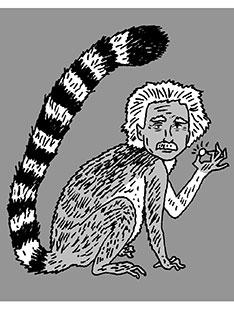
We all know that some bacteria are good, and now a new bacterium that may be able to aid in environmental cleanup has been discovered. Civil engineering professor Peter Jaffe and research scholar Shan Huang have discovered a FRIENDLY MICROBE, which they dubbed A6, that can break down ammonium — a component of sewage and fertilizer runoff — removing it from wastewater before it is flushed into waterways. As reported in PLoS One in April, A6 has the ability to work in anaerobic environments, making it potentially cheaper than oxygen-dependent methods of sewage treatment.
We often think of countries clashing in terms of warfare, but politics and international affairs professor Melissa Lee contends that nations most often weaken their rivals more subtly. A perfect example, she says in a paper published in International Organization in April, is Russia’s undermining of Ukraine in recent years through fomenting internal dissent and government dysfunction. Examining 78 countries over the past 50 years, Lee found that such “HOSTILE NEIGHBORS” are quite common and recommends that diplomats planning statecraft consider the subtle forms of manipulation countries use across borders.
Smart kids might not always top the human popularity pyramid, but nerds can get their revenge in the animal kingdom. A study by ecology professor Daniel Rubenstein, neuroscience professor Asif Ghazanfar, and Ipek Kulahci *14 has found that CLEVER LEMURS are more popular than their witless peers. In an experiment involving a grape inside a clear box, the first lemur to devise how to access the fruit through a drawer was revered by other lemurs, who lavished grooming and other attention on the primate Einstein. The study, published in Current Biology in April, is the first to show a connection between intelligence and social standing in animals.
Physicians worldwide have called for limits on antibiotics to help slow the development of ANTIBIOTIC-RESISTANT BACTERIA. Instead, a new report by scientists including some from the Princeton Environmental Institute (PEI) has found that antibiotics prescriptions increased globally by nearly 40 percent from 2000 to 2015. The study, which included PEI senior research scholar Ramanan Laxminarayan, Professor Simon Levin, and Eili Klein *12, calls for more government regulation, particularly in developing countries.
A new study led by ecology professor Andrea Graham has found that MICE LIVING IN THE LAB have at least one advantage over their country cousins: They develop fewer parasitic worms. Published in PLoS Biology in March, the experiment compared indoor mice to those raised in a special outdoor facility, finding the latter were exposed to bacteria that exacerbated growth of worms in their gut. The findings question the accuracy of mice-based studies in sterile labs, and ask how they might be different if done in more open, real-world environments.